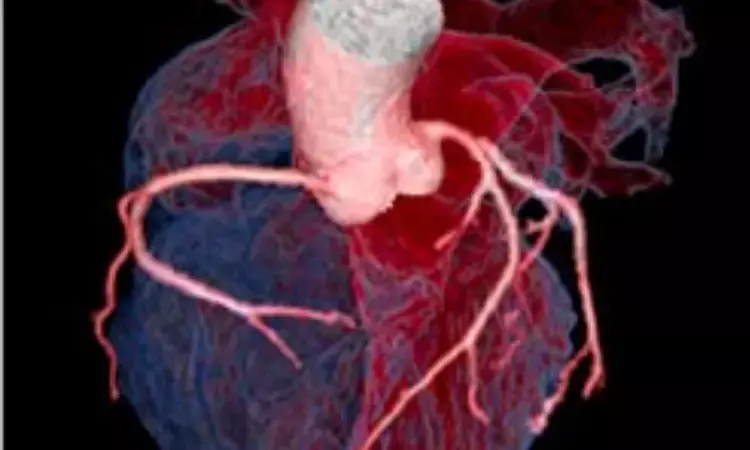- Home
- Medical news & Guidelines
- Anesthesiology
- Cardiology and CTVS
- Critical Care
- Dentistry
- Dermatology
- Diabetes and Endocrinology
- ENT
- Gastroenterology
- Medicine
- Nephrology
- Neurology
- Obstretics-Gynaecology
- Oncology
- Ophthalmology
- Orthopaedics
- Pediatrics-Neonatology
- Psychiatry
- Pulmonology
- Radiology
- Surgery
- Urology
- Laboratory Medicine
- Diet
- Nursing
- Paramedical
- Physiotherapy
- Health news
- Fact Check
- Bone Health Fact Check
- Brain Health Fact Check
- Cancer Related Fact Check
- Child Care Fact Check
- Dental and oral health fact check
- Diabetes and metabolic health fact check
- Diet and Nutrition Fact Check
- Eye and ENT Care Fact Check
- Fitness fact check
- Gut health fact check
- Heart health fact check
- Kidney health fact check
- Medical education fact check
- Men's health fact check
- Respiratory fact check
- Skin and hair care fact check
- Vaccine and Immunization fact check
- Women's health fact check
- AYUSH
- State News
- Andaman and Nicobar Islands
- Andhra Pradesh
- Arunachal Pradesh
- Assam
- Bihar
- Chandigarh
- Chattisgarh
- Dadra and Nagar Haveli
- Daman and Diu
- Delhi
- Goa
- Gujarat
- Haryana
- Himachal Pradesh
- Jammu & Kashmir
- Jharkhand
- Karnataka
- Kerala
- Ladakh
- Lakshadweep
- Madhya Pradesh
- Maharashtra
- Manipur
- Meghalaya
- Mizoram
- Nagaland
- Odisha
- Puducherry
- Punjab
- Rajasthan
- Sikkim
- Tamil Nadu
- Telangana
- Tripura
- Uttar Pradesh
- Uttrakhand
- West Bengal
- Medical Education
- Industry
Efficacy and safety of ticagrelor versus prasugrel not affected by eGFR in ACS patients: ISAR-REACT 5 trial

Germany: Results from ISAR-REACT 5 trial have shown that a reduction of estimated glomerular filtration rate (eGFR) is related to increased risk for ischemic and bleeding events in acute coronary syndrome (ACS) patients. However, the reduction had no significant impact on the relative safety and efficacy of ticagrelor versus prasugrel. The study was published in the journal JACC: Cardiovascular Interventions.
Prior to this study, there was no clarity on the outcomes of ticagrelor versus prasugrel in patients with ACS according to eGFR. Jochen Wöhrle, Department of Cardiology and Intensive Care, Medical Campus Lake Constance, Friedrichshafen, Germany, and colleagues therefore aimed to assess the safety and efficacy of ticagrelor versus prasugrel for patients with ACS according to their eGFRs.
The study included 4,012 patients who were then categorized into three groups: low eGFR (<60 mL/min/1.73 m2), intermediate eGFR (≥60 and <90 mL/min/1.73 m2), and high eGFR (≥90 mL/min/1.73 m2). The primary endpoint was a composite of all-cause death, myocardial infarction, and stroke; the secondary safety endpoint was Bleeding Academic Research Consortium types 3 to 5 bleeding, both at 1 year.
The research revealed the following findings:
- Patients with low eGFRs had a higher risk for the primary endpoint compared with patients with intermediate eGFRs (adjusted HR: 1.89) and those with high eGFRs (adjusted HR: 2.33).
- A risk excess for low eGFR was also observed for bleeding (adjusted HR: 1.55 vs intermediate eGFR; adjusted HR: 1.59 vs high eGFR).
- However, eGFR did not affect the relative efficacy and safety of ticagrelor versus prasugrel.
- In patients with low eGFR, the primary endpoint occurred in 20.5% with ticagrelor and in 14.7% with prasugrel (HR: 1.47); there was no significant difference in bleeding.
The researchers concluded, these results show that among patients with ACS, reduction of eGFR is associated with increased risk for ischemic and bleeding events but has no significant impact on the relative efficacy and safety of ticagrelor versus prasugrel.
Reference:
The study titled, "Ticagrelor or Prasugrel in Patients With Acute Coronary Syndrome in Relation to Estimated Glomerular Filtration Rate," is published in the journal JACC: Cardiovascular Interventions.
DOI: https://www.sciencedirect.com/science/article/abs/pii/S193687982101219X
Dr Kamal Kant Kohli-MBBS, DTCD- a chest specialist with more than 30 years of practice and a flair for writing clinical articles, Dr Kamal Kant Kohli joined Medical Dialogues as a Chief Editor of Medical News. Besides writing articles, as an editor, he proofreads and verifies all the medical content published on Medical Dialogues including those coming from journals, studies,medical conferences,guidelines etc. Email: drkohli@medicaldialogues.in. Contact no. 011-43720751


